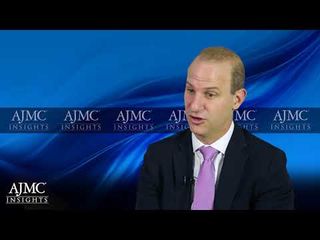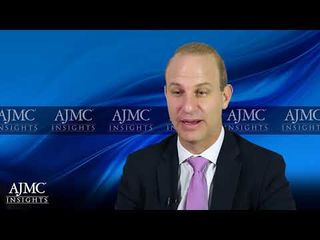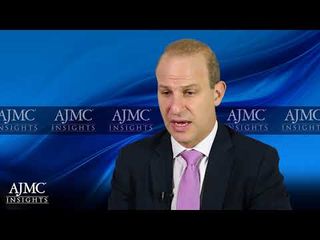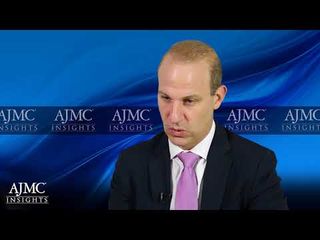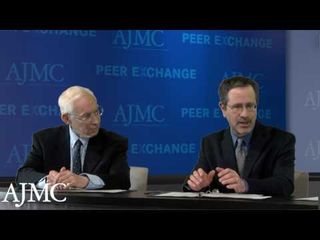
Clinical
Latest News
Latest Videos

CME Content
More News

Two months after the approval of the first biosimilar to infliximab, another Biologics License Application is now under FDA review.

A survey conducted by MaPS/Millward Brown Analytics, on behalf of Memorial Sloan Kettering Cancer Center, has identified multiple concerns of American consumers with cancer clinical trial participation, which could be responsible for the dismal 4% national enrollment rate in clinical trials.

What we're reading, May 24, 2016: Doubt grows about the stability of the Anthem-Cigna merger; use of e-cigarettes and vaping devices stalls in the US; and drugmakers are cautious about developing a Zika virus.

What we're reading, May 23, 2016: Oklahoma governor vetoes bill banning abortion; the FDA approved a new nutrition label highlighting sugar added; and 7 years after death panels, conversations on end-of-life planning are becoming more common.

One year after being hospitalized for heart failure, one-third of patients had not returned to work, according to a study presented at Heart Failure 2016 and the 3rd World Congress on Acute Heart Failure.

A phase 1 study in 225 patients diagnosed with breast cancer, non-small cell lung cancer, glioblastoma, melanoma, or colorectal cancer has concluded that abemaciclib, a selective inhibitor of the cell cycle regulators CDK4/6, has single-agent activity in specific tumor types.

An Oklahoma-based non-profit hospital is the latest medical facility to sue pharmaceutical giant Genentech,accusing the company of shipping less than the labeled claim of the anticancer drug trastuzumab (Herceptin) in each multi-dose vial.

During 2010-2011, there were 506 annual antibiotic prescriptions per every 1000 population, but only 353 were likely appropriate, researchers found.

Men and women diagnosed with colorectal cancer who were class I obese had the lowest risk of dying due to their cancer, according to a new study published in JAMA Oncology.

A microchip sensor that can measure specific volatile compounds in the breath of those with lung cancer, is being developed by research groups in the United States and in Britain.

Value, cost, and the patient are taking center stage during the ISPOR 21st Annual International Meeting, which is being held May 21-25, 2016, in Washington, DC.

What we're reading, May 20, 2016: For the third time the FDA delayed a rule about generic drug labeling; 10 years ago a government report warned of a prison health crisis, but was blocked from publication; and Oklahoma lawmakers pass a bill making it a felony to perform an abortion.

Medical error is the third-leading cause of death and Johns Hopkins University School of Medicine researchers are calling for better reporting on death certificates to help understand the scale of the problem and how to tackle it.

Researchers set out to analyze the clinical outcomes in a real-world clinical setting of patients with T2D who switched to Toujeo from another basal insulin.

Accountable care organizations have to work more on engaging physicians in meaningful leadership roles and should focus on learning about patient goals, said James Whitfill, MD, chief medical officer of Scottsdale Health Partners.

High levels of physical activity are associated with lower rates of cancer, according to a new study published in JAMA Internal Medicine.

A new study warns that symptoms associated with rare CNS tumors could lead to a misdiagnosis of attention deficit hyperactivity disorder among pediatric patients.

The FDA has approved the combination of lenvatinib and everolimus for use in patients with renal cell carcinoma who have failed at least 1 anti-angiogenic treatment. The approval raises questions around the sequencing these agents when a patient fails on first-line care.

What we're reading, May 16, 2016: The Supreme Court has sent the Obamacare contraception case back to the lower courts; in some rural markets customers will have 1 option on the Affordable Care Act exchanges; and the first US case of locally transmitted Zika-related microcephaly has been reported.

There is much excitement over the new checkpoint inhibitors, which have shown benefit across a variety of tumors. Right now, researchers are trying to define the subgroup of patients with breast cancer who might be most suited to checkpoint inhibitors, explained Lee Schwartzberg, MD, FACP, chief of Division of Hematology Oncology and professor of medicine at the University of Tennessee Health Science Center.

Despite a federal law enacted to respond to rising national drug shortages, a new study finds that although the numbers of national drug shortages appearing each year has decreased, the overall number of national shortages remains high.

How doctors are using telemedicine to help relieve the desperate situation in war-torn Syria.

Researchers in Germany have discovered that mitoxantrone-used to treat aggressive, relapsing, or progressive multiple sclerosis-can increase the risk of leukemia and colorectal cancer in those being treated.

What we're reading, May 13, 2016: federal judge rules against Obamacare; Senate reaches deal for $1.1 billion to fight Zika; and Los Angeles is using healthcare funds to house the homeless.

Measurement is essential to improving care and having the equivalent measurements across the field will allow clinicians and providers to be held accountable for the care they provide, said Chip Kahn, president and CEO of the Federation of American Hospitals.

